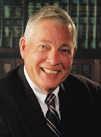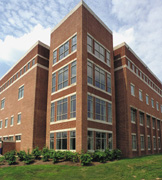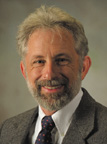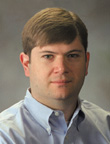Letter to the Editor This letter is in response to the article in Virginia Tech Magazine Volume 21, No. 3, titled "A new crop of Hokie stone: Tech grows but keeps its style." Normally I'd agree with this statement. For instance, I think the university has done a fantastic job incorporating the new buildings on the Prairie. I really like the new McComas Center and Merryman Athletic Center. The new engineering building was greatly needed and is also quite attractive. I think overall Tech does a good job in maintaining an aesthetic campus, with a lot of open green spaces. (If only we could do something about the service vehicles parking on the grass everywhere...couldn't you buy Cushmans or something?) However, I have to say that I feel they dropped the ball with the ACITC building that bridges the Alumni Mall. I have been to campus since construction began and I think it severely degrades the views of the War Memorial Chapel from some of its best angles. In my mind, the chapel is second only to Burruss as one of the most important and significant features on campus. I hate to see its profile from the Drillfield and from the Alumni Mall degraded so substantially. I think an arch on the mall would have been nice...at the other end maybe. I think that would have looked better and would have complemented the chapel. I will be profoundly disappointed if any offices are to occupy the rooms in, or adjacent to, the archway. I feel like the only purpose in putting offices there would be to give some administrator prime real estate to occupy. I wonder how many administrators there are salivating at the idea of an office in an arch overlooking War Memorial Chapel and the Drillfield--at the same time depriving others from enjoying that same view from the mall. I don't think anyone deserves such a perk. Either way, I think the arch significantly degrades the aesthetics of the War Memorial Chapel. Mark Eisenbies '93 Editor's Note: More than 3,000 degrees conferred May 14-16 Virginia Tech conferred 2,620 bachelor's degrees at commencement on May 15. Eric Schmidt, chairman of the board and chief executive officer of network computing giant Novell Inc., was the undergraduate commencement speaker. Other degrees awarded during graduation weekend: 495 master's degrees, 83 Ph.D.s, 77 DVMs, 21 Ed.D.s, 31 associate of agriculture degrees, and seven EDSs. By college, the number of degrees awarded were: Agriculture, 235; Architecture, 134; Arts and Sciences, 984; Business, 574; Engineering, 693; Natural Resources (formerly Forestry and Wildlife), 94; Human Resources and Education, 536; and the Virginia-Maryland College of Veterinary Medicine, 84. Back to Contents Tech center to link rides and riders The Virginia Tech Center for Transportation Research (CTR) has begun work with local organizations on a $50,000 project to develop a service to benefit low-income residents who need transportation to secure and maintain jobs. The program, Access to Jobs, will transport clients of the Montgomery County Department of Social Services, New River Community Action, and the New River Family Shelter to job-related activities such as GED programs and job training. Client trips will be coordinated using a database and dispatch system the CTR is designing to match trip requests with volunteer drivers and public transportation resources. Project funding, including in-kind contributions, is split about evenly between the CTR's Intelligent Transportation Systems Implementation Center and several community groups and agencies. Back to Contents Virginia Tech is meeting the top expectations of parents, according to a survey conducted by the Division of Student Affairs this spring. The survey is a follow-up to a two-year study in which more than 1,300 parents identified their top goals for students' overall college experience. In the survey the parents reported how their students are doing on the top seven parental goals. The survey drew responses from 35 percent of the group. In the electronic survey, 92 percent of the parents agreed with the statement, "My student is receiving a quality education," and 92 percent also agreed with the statement, "My student is becoming more mature/independent." Sixty-four percent of the respondents agreed with the statement, "My student is preparing appropriately for the job market," with another 31 percent neither agreeing nor disagreeing. Many commented that the first year is too early to answer this question. Back to Contents When your alma mater increases in prestige, the value of your education goes up. You'll be glad to know that this year Tech's colleges of engineering, human resources and education, and arts and sciences all have programs ranked in the top 10 nationwide by U.S. News & World Report's 1999 survey of graduate schools. The College of Engineering moved up to 24th place from 25th place last year, and Tech graduate programs in industrial and systems engineering, aerospace engineering, vocational and technical education, sedimentology, and polymers were all ranked in the top 10. Back to Contents "Save Kenny" campaign aims to cut drunk driving The goal of the Virginia Tech psychology project named Don't Kill Kenny! Support Designated Drivers! is to increase responsibility among designated drivers and help reduce the number of alcohol-impaired drivers around Blacksburg. The theme of the campaign focuses on a popular cartoon character from the TV series South Park. Individuals who participated in the campaign last April pledged to be sober designated drivers for the month and received cards that entitled them to free "bottomless designated-driver cups" good for complimentary soft drinks at the local bars. These individuals also had their blood-alcohol concentrations assessed and won prizes in the downtown area. Back to Contents Engineering undergraduates to create Tech's first satellites
In 2001, NASA's Space Shuttle will launch the first satellites created at Virginia Tech, and undergraduate engineering students can boast they were the designers, builders, and operators. During the past fall semester, a team of nine aerospace and ocean engineering (AOE) students drafted conceptual designs for the Virginia Tech Ionospheric Scintillation Measurement Mission as their senior design project. It was one of 10 selected nationwide for a program by the U.S. Air Force and the Defense Advanced Research Projects Agency. Each school will receive $100,000 to construct its satellites, and the Air Force and NASA will cover the launching costs. The students and their adviser, AOE professor Christopher Hall, will build two basketball-sized satellites, each containing a computer, power supply, and communications equipment. The Tech-built satellites will orbit the earth, measuring the effects of ionospheric irregularities on Global Positioning System signals used for navigation and locating purposes. Anheuser-Busch and the Virginia Department of Motor Vehicles are sponsoring this study. Back to Contents Tech begins $3-million campaign to establish Civil War Center
The center will be headed by Robertson, Tech's Alumni Distinguished Professor of History and author of the critically acclaimed biography Stonewall Jackson: The Man, The Soldier, The Legend. It will operate in partnership with the history department in the university's College of Arts and Sciences. Commented history department head Albert Moyer, "Under James Robertson's dynamic yet congenial leadership, the center will provide an ideal setting for top scholars to interact with students and the public in a common effort to shed new light on the war, new light on not merely the political and military aspects but also the more subtle social, cultural, and human implications of this pivotal episode in U.S. history." The center will offer a scholars-in-residence program to attract nationally recognized Civil War experts to spend a semester or two on the Virginia Tech campus; scholarships will be used to entice the nation's best graduate students in Civil War history. The center will sponsor annual symposia, lecture series, exhibitions, and additional radio and television shows and will publish a scholarly Civil War journal. It will expand Virginia Tech's collection of Civil War books, manuscripts, and memorabilia and hire an archivist to organize, maintain, and protect the collection. It will also extend educational opportunities through digital and distance learning programs. Robertson, tapped by President Kennedy in 1961 as the executive director of the U.S. Civil War Centennial Commission, has written numerous books on the Civil War, including Soldiers Blue and Gray and America Becomes One Nation, which received critical acclaim as one of the best children's books about the Civil War. Robertson appears frequently on public television and the Arts & Entertainment Network; he also produces a weekly Civil War program for public radio. His annual week-long June seminar, Campaigning with Lee, draws more than 130 participants nationwide. And his heavily enrolled Civil War classes have informed and entranced a generation of Virginia Tech undergraduates. Back to Contents The Virginia-Maryland Regional College of Veterinary Medicine is looking east for alternative therapies for equine health. Acupuncture, the treatment based upon an eastern philosophy of energy flow through meridians or channels, will be used in treatment of some horses, particularly those with musculoskeletal problems or those that do not respond well to more conventional treatment. Veterinary faculty member Mark Crisman completed a certification requirement to perform acupuncture, a treatment option using between one and 30 strategically placed needles to redirect energy flows among well-documented energy meridians throughout the body. "We're not saying this approach is better than stethoscopes and endoscopes. But we do think there is a time and a place for it," Crisman says. Back to Contents Graduate enrollments at the Virginia Tech Northern Virginia Center (NVC) in Falls Church reached record levels this spring with 2,409 registrations. At the center, Virginia Tech offers 36 graduate degree programs, primarily for working professionals, as well as short courses and seminars sponsored by the Division of Continuing Education. The greatest growth was achieved by the computer science program, which expanded by 116 percent. For the same period, college registrations advanced 63.9 percent in arts and sciences, 23.8 percent in human resources and education, and 8 percent in business. Overall, the center's enrollment grew 19 percent spring to spring. Tech's innovative Graduate Program in Information Technology, unveiled last fall, enrolled 74 students this spring. Back to Contents Professor recognized as among Virginia's best Virginia Tech finance professor Art Keown has been selected to receive Virginia's most prestigious faculty honor, the Outstanding Faculty Award, from the State Council of Higher Education for Virginia. The annual award, which includes a $5,000 prize, recognized the superlative teaching, research, and public service of 11 faculty members at state colleges and universities. Keown, a 25-year member of Tech's faculty, has taught exclusively at the undergraduate level for the past nine years. His typical teaching load consists of mass sections of corporate finance, a core course for business majors. Despite his large classes--up to 600 or more--student evaluations have consistently praised Keown's enthusiasm, his ability to make the study of finance fun, and his respect and concern for students. Keown has written four textbooks used at more than 60 universities and also developed innovative instructional materials, including a website linked to about 850 related sites. He served as head of the finance department for nine years before returning to full-time teaching in 1991. Back to Contents Deck receives NSF Career Award Paul A. Deck, assistant professor of chemistry, has received his second major award within a year, this time the National Science Foundation's CAREER award. The $343,000 award covers a four-year period that began Feb. 1, 1999. Deck received the award based on research designed to better understand how the chemistry of catalyst molecules changes when the molecules are bonded to complex support materials such as silica. "Similar silica-supported catalysts are used to make plastics like polyethylene," Deck says, "but the structure and reactivity of the catalyst molecules attached to surfaces remains one of the big mysteries. Our unique approach is to systematically restrict the tendency for catalyst molecules to 'flop around' on the surface by attaching them using different combinations of well-defined molecular tethers." The educational aspect of Deck's award follows up on a plan he initiated under a Center for Excellence in University Teaching (CEUT) Summer Faculty Fellowship. Deck is developing a writing-intensive non-technical course for chemists that addresses career planning and development, scientific and professional ethics, and some of the financial and legal aspects of the chemical business, all from highly practical viewpoints. The pilot version of this course ran last fall under CHEM 4024. Deck's work also recently earned him a $50,000 Cottrell Scholar Award given to younger university faculty members to enable them to pursue original research and teaching ideas. Back to Contents Tech teams up to develop traveler information systems The Virginia Tech Center for Transportation Research, in partnership with SHENTEL Service Co., has been selected to lead the development of a comprehensive advanced traveler information system (ATIS) for the Shenandoah Valley region of Virginia, and then to expand that model statewide. Support for the initiative, valued at more than $900,000, is being provided by the Virginia Department of Transportation (VDOT), the Virginia Tourism Corporation (VTC), SHENTEL Service Co. (a subsidiary of Shenandoah Telecommunications), and the Virginia Intelligent Transportation Systems Implementation Center. The Shenandoah ATIS, called "Travel Shenandoah" will be an integrated traveler information service, providing comprehensive, timely, accurate, and useful information on traffic and travel conditions, traveler services, tourist destinations, and emergency services to travelers, potential travelers and those serving travelers in the corridor, says project co-director Aaron Schroeder, a researcher with the Center for Transportation Research. VDOT and the state police will be able to use Travel Shenandoah to help manage I-81 traffic incidents, including disruptions from construction as I-81 is widened. Potential information delivery mechanisms include the Internet, kiosks, cellular phones, PCS/digital wireless phones, pagers, changeable roadside advisory signs, radio, and cable TV, says Schroeder. "Travel Virginia," the broader, statewide project being led by the Center for Transportation Research, calls for the development of a network of regional partnerships, structured in a similar fashion to Travel Shenandoah, across the commonwealth. Back to Contents Business, engineering majors in demand Recruiters coming to Virginia Tech are more interested in meeting business and engineering students than any other, according to statistics compiled at the Career Services' fall on-campus interviewing program. The top 10 majors were: management science and information technology (decision sciences option), electrical engineering, mechanical engineering, finance, computer engineering, industrial and systems engineering, computer science applications, chemical engineering, marketing, and accounting. The list accounts only for the 1,984 students participating in recruiting programs. Career Services Director Jim Malone says not all seniors participate--some may have jobs or job offers in hand as a result of co-op, internship, or other programs; others may be using career services offered by their academic departments. While business and engineering majors are the traditional draw for recruiters, such majors as math and agricultural and applied economics also fared relatively well in interview numbers. In the fall 1998 semester, 497 organizations recruited on campus, up 22 percent from 1997, says Malone. They conducted 11,576 interviews, up 12 percent from the previous year. Back to Contents Alumni honored on Founders Day Henry J. Dekker (accounting '47) is this year's recipient of the Ruffner Medal, the university's highest honor for dedicated and distinguished service. Dekker has figured prominently in the leadership of a range of university institutions: the board of visitors, the Virginia Tech Foundation, the Campaign Steering Committee, the Pamplin Advisory Council, the corps of cadets alumni, and the German Club alumni foundations. Dekker is credited with leading the effort to revitalize the corps of cadets, an endeavor that included a $10-million scholarship endowment and the creation of the Corps Center for Leader Development. He chairs the Virginia Tech Corps of Cadets Alumni Inc., and serves also on the advisory committee of the new university Center for Leadership Studies. Dekker was class president in each of his first three years and was president of the corps in 1942-43. After serving as an officer during World War II, Dekker returned to finish his degree. Dekker served on the board of visitors from 1989 to 1997. He served as chair of the finance and audit committee and as vice rector. He was rector during his final year. He is a director of the Virginia Tech Foundation and its executive committee, and is a senior benefactor of the foundation. Dekker received the Alumni Distinguished Service Award in 1987. Two members of the Class of '62 were awarded the Alumni Distinguished Service Awards for 1999. Mary Virginia Jones (mechanical engineering '62) and Sam Lionberger (building construction '62) have demonstrated a willingness to give back to their alma mater and serve as role models for members of their professions. Jones, a successful engineer, designer, and pioneer for women in the field, continually gives back to both the profession and her alma mater, according to F. William Stephenson, dean of the College of Engineering. One of the first women to graduate with honors in engineering from Virginia Tech, Jones served on the board of visitors, from 1984-88. She was the first woman to receive the Distinguished Alumni Achievement Award. Until 1995, she was the only woman to have served on the College of Engineering's Advisory Board. She was the first woman to receive that college's Achievement Award. She is currently on the search committee for Tech's next president, and is president-elect of the alumni association. "I hope that I will always be able to serve Virginia Tech. If Tech had not admitted women in engineering, I certainly would not have had the wonderful career that I have experienced," Jones says. Lionberger was president of his class. Now he is CEO of the family-owned Lionberger Construction of Roanoke. Lionberger and his wife Rindy established the Samuel L. Jr. and Lorinda G. Lionberger Endowment Fund for Student Education, a source of funds to strengthen the department of Building Construction's ties to industry. He has been a member of the Advisory Council of the College of Architecture and Urban Studies. Lionberger served five years as an alumni board member, a term on the President's Council, was the alumni representative on the committee to develop the university plan, and supported the Virginia Tech Campaign for Excellence as a local committee member. In 1997, Lionberger was inducted into the Ut Prosim Society. "Sam's commitment to the well-being of future generations of young people is truly exemplary," says Paul Knox, dean of the College of Architecture and Urban Studies. Back to Contents Home | News | Features | Research | Philanthropy | Athletics | Alumni | Classnotes | Editor's Page |


 Building on the reputation of nationally renowned Civil War historian James I. Robertson Jr. and a massive collection of Civil War books, Virginia Tech has initiated a $3-million fund drive to establish the Virginia Center for Civil War Studies.
Building on the reputation of nationally renowned Civil War historian James I. Robertson Jr. and a massive collection of Civil War books, Virginia Tech has initiated a $3-million fund drive to establish the Virginia Center for Civil War Studies.




